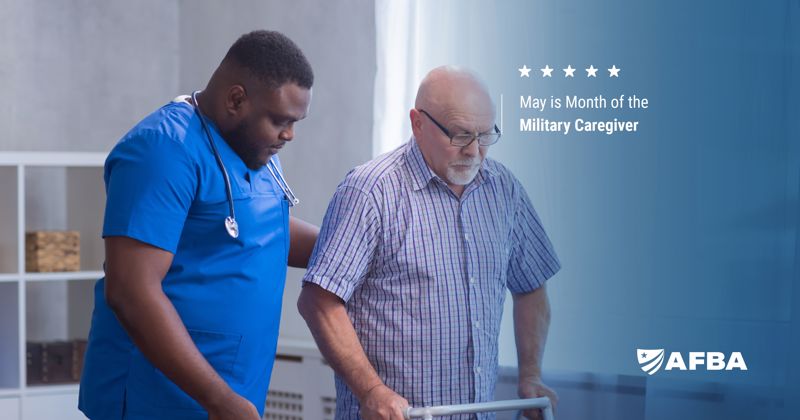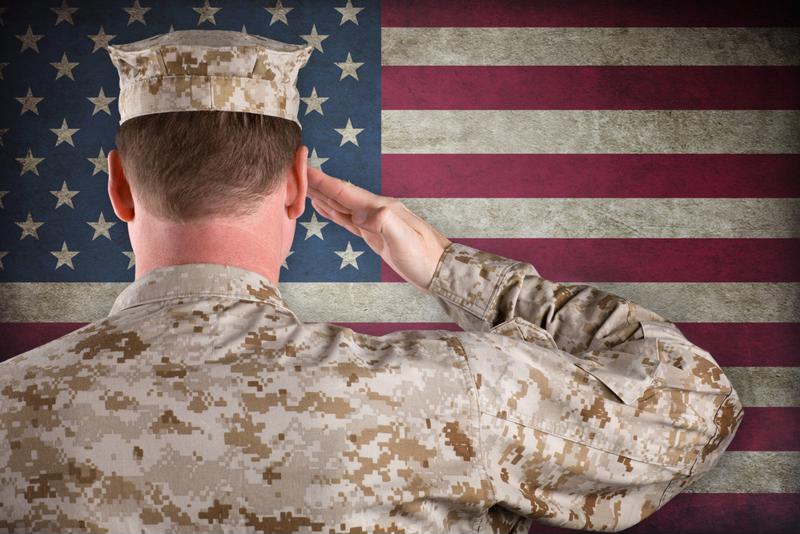There are few jobs as selfless or necessary as the military caregiver. These individuals — who can be friends, distant relatives, family members, or anyone else who wants to help — assist disabled members of the military with activities they can no longer perform on their own. This can include showering, eating or dressing. A military caregiver might also be called a veteran caregiver if the individual receiving care is a veteran but not an active servicemember.
Despite the name, not all military caregivers identify as caregivers. A military caregiver isn’t necessarily a job title (though for some, it can be), but rather a catch-all term for someone who helps a servicemember or veteran with daily activities.
While they’re necessary to the service member’s life, many military caregivers don’t get the resources they need to manage. Being a military caregiver is often extremely stressful, and many give up basic necessities in their lives to serve their member(s) of the military. That’s why, in addition to talking about how valuable military caregivers are, we’ll also be discussing the resources available to them — and how you can help.
 “The appearance of the U.S. Department of Defense (DoD) visual information does not imply or constitute DoD endorsement.”
“The appearance of the U.S. Department of Defense (DoD) visual information does not imply or constitute DoD endorsement.”How else do military caregivers help?
A military caregiver may not assist with physical activities at all, but instead (or even in addition to this) serve a servicemember by:
- Offering emotional support.
- Taking care of legal or financial responsibilities.
- Managing their schedule and transportation to and from appointments.
Active duty members of the armed forces and veterans alike often don’t get the help they need to function in their daily lives. A military caregiver is someone who makes that possible.
The challenges military caregivers face (and the help they can get)
Serving indirectly as a military caregiver isn’t easy. It can be incredibly stressful and eventually lead to burnout, which in turn can lead to serious psychiatric symptoms such as anxiety and depression.
Luckily, there are some programs available that aim to assist those who sacrifice more than just their own time and energy to care for active service members and veterans (many give up their education, health and finances as well). One is the Department of Defense, which has been reaching out to military caregivers since 2013 to provide support. They offer resources such as networking opportunities with other caregivers to help each other cope emotionally, physically and financially. For many military caregivers, opportunities like these are invaluable for their own well-being.
Other nonprofit programs such as the Wounded Warrior Project exist to help wounded members of the military return to being active participants in their community, among many other services the organization offers. Military caregivers can also take advantage of the extra help.
What can you do to help?
If you want to become involved in helping military caregivers care for both their service member(s) and themselves, reach out to one and offer whatever assistance you can. They will surely appreciate it.
Alternatively, you can donate to a cause such as the Wounded Warrior Project that directly benefits military caregivers. You can also call up your nearest army station or veterans affairs office and ask if they know of any local opportunities to get involved.
Become a positive force for military caregivers so they can continue to serve
Military caregivers give their bodies and souls to caring for an active duty service member or veteran. Just as the military community constantly needs help, so are the people who are crucial in improving their quality of life.
This May, recognize and honor those who indirectly serve in this way.

